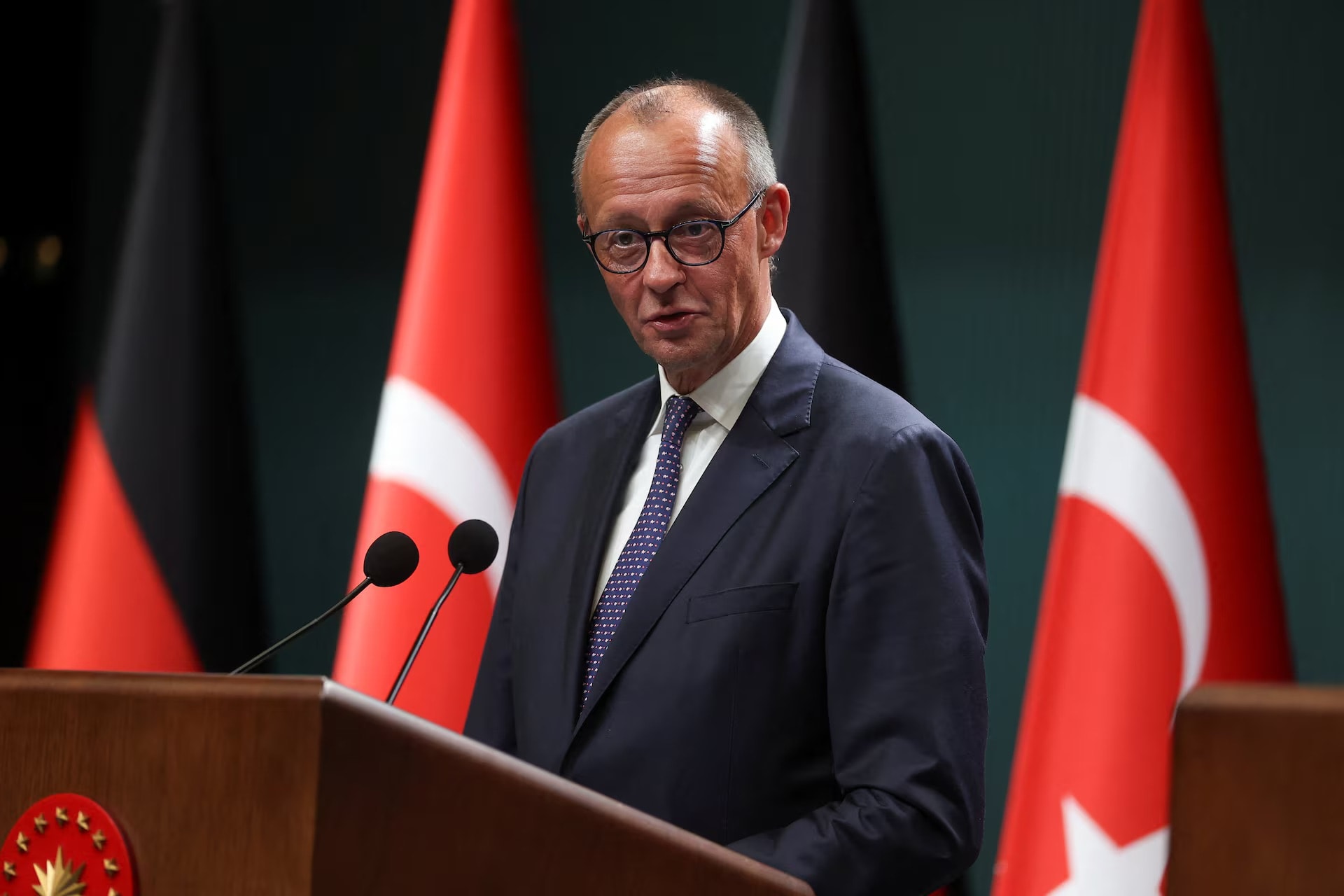Germany and Türkiye: Security interests outweigh tensions? NATO defense cooperation takes center stage.
Türkiye is playing an increasingly important role in European security. Berlin is placing its trust in defense cooperation with Ankara to strengthen its defense capabilities in a complex geopolitical landscape.

An opportunity for a handshake between two allies.
A recent article published by DW argues that the conflict in Ukraine has triggered a profound reassessment of Germany's security policy. Since then, Berlin has not only strived to support Kyiv but has also focused on strengthening its own defense capabilities. According to Turkish defense analyst Caglar Kurc, the war in Ukraine demonstrates NATO's defense production shortfall.
Since the conflict broke out, European countries in particular have been seeking to increase their production capacity to meet this demand. To address this challenge and meet the aforementioned requirements, Germany is actively seeking new partners, and its NATO ally Türkiye is a key option.

In fact, defense issues became a central topic in the meeting between German Chancellor Friedrich Merz and Turkish President Recep Tayyip Erdogan at the end of October. President Erdogan affirmed that Türkiye would continue to cooperate closely with Germany.
A few weeks earlier, during a visit to Ankara, German Foreign Minister Johann Wadephul expressed his welcome: “We are delighted that our two defense industries can cooperate. One could almost ask: Who else could we cooperate with on this issue?”
According to a senior official, speaking on condition of anonymity, working at the German Armed Forces Procurement Office in Koblenz, Germany's network of partners is shrinking amid challenging geopolitical conditions.
The official stated: “It’s clear to us all that NATO must assume a completely different role on the geopolitical stage. When you look at how North Atlantic relations, the situation in Ukraine… are developing, the world suddenly seems quite small.”
The official described Türkiye as "a strong and well-positioned NATO partner" from which both sides can learn. It is known that Türkiye currently possesses the second-largest military in NATO, after the United States.
Turkey's defense industry is booming.
The Turkish defense industry is experiencing strong growth. In 2022, for the first time, four Turkish companies (Baykar, Aselsan, TAI, and Roketsan) made it onto SIPRI's list of the world's top 100 arms companies. The industry's reputation is significantly improving, even in Germany.
According to Benedikt Meng, a German defense expert with many years of experience, Türkiye could become both a cooperation partner and a market for the German and European arms industries. He argues that, given its position as one of NATO's largest partners and a key player in the Middle East and the Caucasus, "deeper industrial and defense relations would certainly offer advantages in terms of shared security interests."
Cooperation agreements have been established. Notably, from 2027, the Turkish company Repkon will manufacture 155mm artillery shells – the standard ammunition for NATO rocket artillery, also used in Ukraine – in Germany. Turkish media called this a "technology transfer," while expert Kurc considered it to have symbolic value.
Mr. Kurc emphasized: "The production capacity, willingness to cooperate, and quality of Turkish companies are a crucial resource for the development of European defense. It would be a mistake for Europe to exclude Turkey from this picture."
Despite years of political tension, such as Germany's withdrawal of Tornado aircraft from Incirlik Air Base in 2017, the relationship is now changing. Türkiye is once again seen as a partner, while criticisms regarding human rights have been somewhat toned down.

The Bundeswehr official admitted: "...Let's be honest: what other choice do we ultimately have? We're not going to tell the US, 'We're not going to buy your weapons systems anymore because you're deporting immigrants.'" Germany is striving to maintain NATO relations with Türkiye, a country that maintains good relations with China and Russia.
Recently, Türkiye has asserted its international standing, particularly with its powerful and affordable unmanned aerial vehicles (UAVs). These UAVs played a decisive role in the Nagorno-Karabakh conflict and are being used in Ukraine. Two EU countries, Poland and Romania, have purchased them. The Bundeswehr official suggested that Germany "should certainly consider Turkish UAVs." Mr. Meng also noted that Turkey has developed interesting expertise in the field of UAVs and other flight systems, which could be incorporated into joint projects.
Meanwhile, analyst Kurc emphasized: "Türkiye's increasing production capacity also strengthens NATO. While Europe is still working on the Eurodrone project, Türkiye already has two equivalent systems. If Europe leverages these capabilities, it will bolster its defenses."
Türkiye is also seeking deeper involvement in Europe's armament strategy. The European Commission has confirmed receipt of Turkey's application to join the "Security Action for Europe" (SAFE) program, a move that demonstrates its determination to integrate more deeply into the bloc's defense architecture.
Germany's strategic shift, from reducing criticism to promoting defense cooperation, is a clear illustration of how shared security interests are dominating complex geopolitical relationships. Türkiye, with its booming defense production capabilities and crucial strategic position, has become an indispensable partner in Europe's and NATO's efforts to bolster defenses. In a shrinking and volatile world, strengthening defense industry cooperation with Ankara is not only a pragmatic solution but also a strategic step that helps the North Atlantic bloc enhance its self-reliance and protect collective interests.



